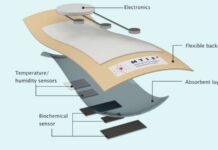A recent study has found microplastics in fecal samples from people with inflammatory bowel disease (IBD).
The increasing consumption of plastic poses problems not only to the environment but also to human health. Recent studies have found evidence of microplastics within human organs and even placentas. However, the risk to human health remains unclear. Now, a team of researchers have conducted a study examining the link between microplastics and inflammatory bowel disease (IBD). Results of the study are available in ACS’ Environmental Science & Technology journal.
Inflammatory Bowel Disease has two types: Ulcerative Colitis and Crohn’s disease. Both are characterized by inflammation of the digestive tract. Symptoms include diarrhea, abdominal pain and cramping, rectal bleeding, reduced appetite, weight loss, and fatigue. Although the exact cause is unknown, certain factors such as diet and stress can aggravate the condition. Foods such as dairy, gluten, and fatty meat often trigger inflammation in the gut and cause flare-ups in people.
Moreover, animal models have shown that microplastics (MPs) can also cause intestinal inflammation and disturbances in the gut microbiome. Therefore, researchers Faming Zhang and Yan Zhang wondered whether microplastics can also cause IBD in people.
Cause or Effect?
The team of researchers analyzed fecal samples from healthy adults and people with IBD. They not only aimed to assess the microplastic concentration within the samples but also the characteristics of the MPs. Results showed that people with IBD had 1.5 times higher levels of microplastics than the control group. Moreover, the IBD feces had smaller plastic particles.
Polyethylene terephthalate and polyamide, both of which are used in food packaging and containers, were the most common types of plastic in both groups.
Combining a questionnaire survey and the characteristics of fecal MPs, we conclude that the plastic packaging of drinking water and food and dust exposure are important sources of human exposure to MPs.
study authors
Although the study suggests that people with IBD have greater exposure to microplastics, it is unclear whether the microplastics cause the development of disease or if these people accumulate more microplastics as a result of their disease. Therefore, researchers plan to conduct more studies to assess the mechanism further.
Reference:
Analysis of Microplastics in Human Feces Reveals a Correlation between Fecal Microplastics and Inflammatory Bowel Disease Status, Environmental Science & Technology (2021). DOI: 10.1021/acs.est.1c03924




